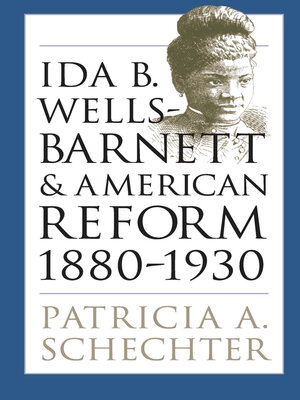Ida B. Wells-Barnett and American Reform, 1880-1930
ebook ∣ Gender and American Culture
By Patricia A. Schechter

Sign up to save your library
With an OverDrive account, you can save your favorite libraries for at-a-glance information about availability. Find out more about OverDrive accounts.
Find this title in Libby, the library reading app by OverDrive.



Search for a digital library with this title
Title found at these libraries:
| Library Name | Distance |
|---|---|
| Loading... |
Pioneering African American journalist Ida B. Wells-Barnett (1862–1931) is widely remembered for her courageous antilynching crusade in the 1890s; the full range of her struggles against injustice is not as well known. With this book, Patricia Schechter restores Wells-Barnett to her central, if embattled, place in the early reform movements for civil rights, women's suffrage, and Progressivism in the United States and abroad. Schechter's comprehensive treatment makes vivid the scope of Wells-Barnett's contributions and examines why the political philosophy and leadership of this extraordinary activist eventually became marginalized.
Though forced into the shadow of black male leaders such as W. E. B. Du Bois and Booker T. Washington and misunderstood and then ignored by white women reformers such as Frances E. Willard and Jane Addams, Wells-Barnett nevertheless successfully enacted a religiously inspired, female-centered, and intensely political vision of social betterment and empowerment for African American communities throughout her adult years. By analyzing her ideas and activism in fresh sharpness and detail, Schechter exposes the promise and limits of social change by and for black women during an especially violent yet hopeful era in U.S. history.
Though forced into the shadow of black male leaders such as W. E. B. Du Bois and Booker T. Washington and misunderstood and then ignored by white women reformers such as Frances E. Willard and Jane Addams, Wells-Barnett nevertheless successfully enacted a religiously inspired, female-centered, and intensely political vision of social betterment and empowerment for African American communities throughout her adult years. By analyzing her ideas and activism in fresh sharpness and detail, Schechter exposes the promise and limits of social change by and for black women during an especially violent yet hopeful era in U.S. history.







